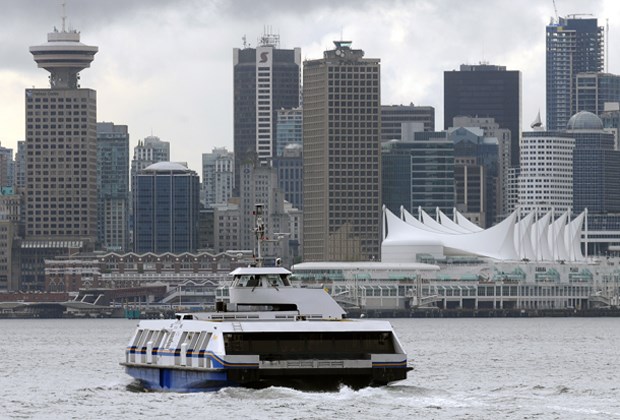The province and the Lower Mainland's mayors have reached an apparent stalemate on the future of the Lower Mainland's transit and how to pay for it.
Transportation and Infrastructure Minister Todd Stone held a press conference Thursday to say the province is committed to holding a referendum on future transit projects and funding, and that it will be up to the TransLink mayors' council to come up with a question. The statement followed news that the mayors' council had met and agreed to formally oppose the referendum plan.
"They are the mayors.
They have the responsibility to lead as a region. While the mayors have put numerous ideas out there in terms of what the priorities should be for each of their respective communities, to date, they have not agreed on a common vision, a total price tag for that vision or how to specifically pay for it," Stone said.
A Broadway SkyTrain line, light rail lines in Surrey as well as improved bridges, more bus capacity or more frequent service are all on mayors' wish lists, Stone noted.
Currently, mayors can only influence the amount of money TransLink raises from residential and commercial property taxes and passenger fares. Anything beyond that, like vehicle levies, road pricing or a new sales tax to be spent exclusively on transportation infrastructure would be up to the province. Stone said the referendum is meant to put that decisionmaking power in the hands of taxpayers.
Speaking at a North Vancouver Chamber of Commerce function on Thursday, both North Vancouver mayors expressed frustration at the province's intransigence on TransLink funding.
"Somebody has to have the guts to go to the public and talk about all the various sources of funding and do all of the groundwork," said North Vancouver District Mayor Richard Walton, also chairman of the mayors' council.
Without looking into any new sources of funding, they will have no choice but to raise residential and business property taxes to pay for the multibillion-dollar projects.
"Our view is that's not equitable. It's not the right way to move. It needs to be a relationship between how far and how frequently people travel and what they pay to subsidize the road system and the transit system," he said.
The road pricing model, Walton said, is "textbook" all over Europe.
Timing the referendum with November's municipal elections also creates an impractical deadline without giving the mayors any tools to educate and consult with the public on the options before them, Walton added. It took 32 months of consultation with Los Angeles residents before they approved a .5 per cent sales tax, which passed with 67 per cent support, Walton noted.
"It can't be done in nine months with a forced referendum date without a plan and without any leadership. It simply is poor planning. It doesn't matter whether you're in government or you're in business. It just isn't the right way to go about it. Simple as that," he said.
North Vancouver City Mayor Darrell Mussatto joined in, noting that the mayors have asked three successive premiers to introduce a vehicle levy to fund transit, and each turned down their request. "We come up with solutions and they won't let us implement them. That's not good governance and that has to change," Mussatto said.
The SeaBus and Lonsdale Avenue busses are frequently full to capacity and are badly in need of reinvestment, Mussatto said.
Despite the impasse with no solution in sight, Stone stressed the importance of getting transit "right" for the Lower Mainland.
"There's a tremendous amount riding on this. We all can agree on the fact there's upwards of a million more people expected to be in the region over the next 20 or 30 years. We can all agree on the fact that from a livable communities perspective, getting transit and transportation expansion right is critically important to quality of life in all of our communities," he said, adding that the same goes for goods movement and growing the economy.
Asked what the referendum will be if the mayors don't come up with a unified vision and question, Stone's response clarified nothing.
"We'll cross, no pun intended, that bridge when we get to it," he said.



